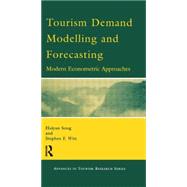- ISBN: 9780080436739 | 0080436730
- Cover: Hardcover
- Copyright: 6/30/2000
The phenomenal growth of both the world-wide tourism industry and academic interest in tourism over the last thirty years has generated great interest in tourism demand modelling and forecasting from both sectors. However, the tendency for researchers and practitioners engaged in quantitative causal tourism modelling and forecasting to run many regression equations and try to choose the 'best' model based on various parametric and non-parametric criteria has been widely criticised as failing to provide credible results. The aim of this book is to present the recent advances in econometric modelling methodology within the context of tourism demand analysis at a level that is accessible to non-specialists, and to illustrate these new developments with actual tourism applications. The book begins with an introduction to the fundamentals of tourism demand analysis, before addressing the problems of traditional tourism demand modelling and forecasting, i.e. data mining and spurious regression due to common trends in the time series. Three chapters explore the general-to-specific approach to tourism demand modelling and forecasting, including the use of autoregressive distributed lag processes, cointegration analysis and error correction models. The time varying parameter model together with the use of the Kalman filter as an estimation method is a useful tool for examining the effects of regime shifts on tourism demand elasticities: this is explored next. The panel data approach is introduced as a way of overcoming the problem of estimation and forecasting biases caused by insufficient time series data. The book concludes by evaluating the empirical forecasting performance of the various models and putting forward some general conclusions.






